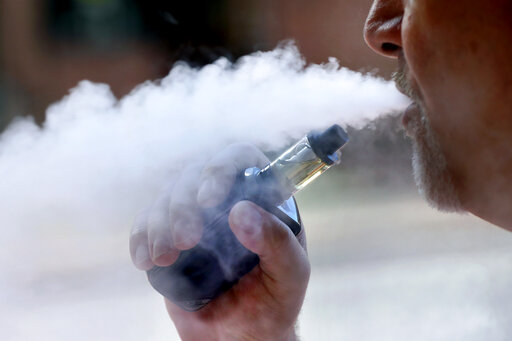As the FDA pressures e-cigarette firms to stamp out youth vaping, the agency faces criticism itself for failing to rein in the fast-growing industry after years of bureaucratic delays dating back to the Obama administration.
Despite recent tough talk, the FDA has yet to pass any new industry-wide restrictions after two years of rapid growth in teenage vaping tied to the popularity of e-cigarettes made by Juul Labs Inc.
A measure to restrict sales of flavored e-cigarette products perceived to target teens was first proposed more than a year ago and touted in September by U.S. President Donald Trump. But the proposal has gotten bogged down in negotiations between the FDA and the White House amid pressure from the industry. Vaping advocates have argued a ban on flavors could alienate potential Trump voters next year, citing polls commissioned by the e-cigarette industry.
White House spokesman Judd Deere said in a statement the process “is not stalled” and that the administration “continues to move forward on development of responsible guidelines that protect the public health and the American people.”
The FDA has also delayed for years a deadline for e-cigarette makers to show their products provide a net benefit to public health. It’s now set for May after a federal judge earlier this year ordered the agency to move the deadline forward.
Former FDA Commissioner Scott Gottlieb told Reuters he believes the FDA should immediately ban sales of e-cigarettes such as Juul that continue to drive increases in youth vaping rather than wait for the applications.
Public health advocates criticize the FDA for failing to assert its regulatory authority over e-cigarettes.
“It’s endlessly frustrating,” said Desmond Jenson, a senior staff attorney at the Public Health Law Center, a Minnesota legal advocacy group focused on tobacco issues. “I can go back to FDA’s press page, where there are dozens of statements talking about Juul, and not one of those resulted in products coming off the market.”
The FDA declined a request for an interview with Mitch Zeller, who heads tobacco regulation, about its oversight of e-cigarettes. In written answers to questions, the agency said it would review e-cigarette firms’ regulatory applications by “weighing the deeply troubling uptake of these products by our nation’s youth against the possible benefits of decreased use of combustible tobacco products by adults.”
The FDA cited concerns including the dual use of e-cigarettes and cigarettes, and the question of whether e-cigarettes have become a “gateway” to traditional cigarettes for young people. The agency did not answer questions on whether it has the final say over such applications, or if the White House would get involved in its decisions on new e-cigarette regulations.
The White House declined to comment on whether it would get involved in the e-cigarette applications to the FDA.
The agency only got authority to regulate the tobacco industry in 2009, when President Barack Obama signed a sweeping tobacco control bill. The new law followed nearly two decades of failed attempts by the FDA and Congress to regulate the industry.
The FDA first started crafting rules for e-cigarettes in 2011, but industry lobbying delayed the rule allowing FDA regulation until the final months of the Obama administration, in May 2016.
When Commissioner Scott Gottlieb took the helm in 2017 as President Donald Trump’s first appointee to head the FDA, he pushed back a regulatory deadline for e-cigarette makers to prove their products provide a net benefit to public health, from 2018 to 2022.
A consortium of public health groups sued the FDA over the delay and won earlier this year. A federal judge ruled in July that e-cigarette makers had to file applications by next May, citing a “clear public health emergency.”
In a written statement, the FDA said it chose to push back the deadline in 2017 because it believed e-cigarette makers could not get applications finished in time. That could have resulted in the “immediate market exit” of products “that could be potentially less harmful” than cigarettes to adult smokers.
When data came out the following year showing a large increase in teenage e-cigarette use, the agency “revisited our policies in this area,” the agency said.
Gottlieb defended his tenure at the agency in an interview, saying he raised public awareness about teen e-cigarette use, cracked down on e-cigarette makers using kid-friendly flavors and packaging, conducted unannounced inspections at Juul’s San Francisco headquarters and proposed restrictions on flavored cigars.
“There was a lot of action there,” he said.
Was this article valuable?
Here are more articles you may enjoy.


 Canceled FEMA Review Council Vote Leaves Flood Insurance Reforms in Limbo
Canceled FEMA Review Council Vote Leaves Flood Insurance Reforms in Limbo  Credit Suisse Nazi Probe Reveals Fresh SS Ties, Senator Says
Credit Suisse Nazi Probe Reveals Fresh SS Ties, Senator Says  These Five Technologies Increase The Risk of Cyber Claims
These Five Technologies Increase The Risk of Cyber Claims  Cape Cod Faces Highest Snow Risk as New Coastal Storm Forms
Cape Cod Faces Highest Snow Risk as New Coastal Storm Forms 